- Home
- Tanya Anne Crosby
The Summer Star: One Legend, Three Enchanting Novellas (Legends of Scotland Book 2) Page 6
The Summer Star: One Legend, Three Enchanting Novellas (Legends of Scotland Book 2) Read online
Page 6
Closing one door, Sorcha crept quietly across the room toward the other. She opened that door as well without setting off alarms. Bright sunshine assaulted her, momentarily blinding her.
“Madainn mhath!” a woman said in greeting.
Startled, Sorcha squealed in surprise. “Halloo! Good day,” she replied, having no true bearing of time.
“I trust you slept well, my lady?”
As well as could be expected for a woman who’d been drogued, and then placed inside a tower, in a strange man’s bed. But Sorcha said, “Yeah.”
In answer, the woman offered her a genuine smile. “A bheil an t-acras ort?” Art hungry, she asked in the old tongue.
Sorcha blinked in confusion. These people were not behaving much like gaolers. Perhaps, in truth, she wasn’t a prisoner at all?
But she worried. Mayhap the ship did go down in a storm—one she couldn’t recall. Perhaps she’d hit her head on the mast—or something else—and everybody drowned, save her. Only somehow, she must have washed up on this isle… but that story didn’t please her much at all, because then everything would be lost—including her sweet Liusaidh. “Yeah,” Sorcha said, though she no longer remembered what was asked of her.
Seeming to understand her confusion, the sweet-faced woman took Sorcha by the hand, leading her away. “Here, now, lass, let us find you something to eat,” she said. “And then, we shall go and visit your lovely mare.”
“Liusaidh?”
The woman smiled. “Your name be Sorcha, yeah?”
“To be sure,” Sorcha said, but she shook her head, completely and utterly bewildered, and nonetheless, she allowed the woman to lead her away.
Chapter 6
The instant Keane dún Scoti received news of his youngest sister’s disappearance, he gathered a bevy of men and saddled his mount. Each to their own pace, they scoured the woodlands, hills and dales, searching for any sign of Sorcha. By the fourth day of Sorcha’s disappearance, there was still no sign of her, and Aidan grew concerned. Sorcha’s value to Padruig was too great, for the man had no heirs, aside from the daughter he’d forsaken and the grandson he refused to claim. If he ever meant to preserve his legacy, he needed to carve away his pride, or get himself a son… or another daughter to barter away. To his good fortune, fate handed him the latter.
At twenty-four, Sorcha was equally as beautiful as her sister Lìli, but she was as young and naive as she was lovely. She did not have Lael’s fury, nor Cailin’s cunning, and nevertheless, like Catrìona, who was stolen from the Vale by King David, himself, Keane realized the youngest of his sisters was far more adept than anyone might presume. Much like his wife Lianae. The two women had innately gentle spirits, though when the occasion called for it, Keane would not wish to be on the receiving end of either woman’s temper. Sorcha had a sweet-natured goodness, but with a ruthless edge that would serve her well on her own—unless, of course, someone should appeal to the girl’s sense of compassion, and then, there was no telling what they might get her to do.
As for Padruig… Keane was certain the old fool did not possess her. If he did, he would never have sent men out to scour the woodlands only for show. He was a miserly bawbag who would never bother to waste his resources. Nevertheless, just to be certain, Aidan was patrolling the lands near Inbhir Nis while Cameron McKinnon went in the direction of Perth and Argyll. Keane, for some reason that he couldn’t explain, rode northwest.
It was that star.
It made him think of Una.
And if he had Una in mind, he had an inkling so, too, did Sorcha.
The two had been so close, and Sorcha had not been the same since Una’s death. It was no wonder she was off her head. The poor lass had had a time of it, when suddenly, overnight, she had a sister she’d never anticipated and a sire everyone loathed.
Keane suspected she must feel betrayed by her kinsmen—himself included, because he’d never dared question Aidan’s edict not to tell her. It had seemed such a harmless secret. After all, what good could ever come of Sorcha learning that her da was the blackguard who’d murdered their father and defiled their mother?
Surrounded by ancient pinewoods in every direction, Keane placed himself in his sister’s shoes, and fortunately, he had one thing on his side his brother did not. He’d spent ten years in King David’s guard, tracking rebel forces. But more importantly, he knew full well that his sister would know how to conceal her tracks, because he’d taught her how to do it himself. She’d come oft to Dunràth, and he would be sure she could fend for herself. He’d taught her everything he knew, and she was a good pupil—so good, he had trouble locating her tracks.
After Nones on the fifth day, he finally discovered evidence of her passage outside a small village; campfires snuffed with dirt, and nearly impossible to detect, because she’d cut her wood to slivers, allowing it to burn more evenly. Living off the land, she had been eating wild mushrooms, leeks and berries, which were all available in plenty this spring. Soft hearted and a lover of creatures, Sorcha had opted for nature’s bounty instead, pulling up edibles up by their roots. Keane found evidence of freshly plucked ramps and wild berry stems. His sister, more than anyone, knew precisely which were safest to eat, for she was an apothecary and a healer, quite accomplished in her skills. To Sorcha’s credit, she had both Lìli’s and Una’s tutelage combined, and although she liked to think herself their pupil, she was a master all to herself.
Quite certain the evidence he’d found must be Sorcha’s, Keane followed her trail back to the king’s road, but then he lost it again, and nevertheless, once he encountered the road, he was startled to discover it well traveled, with motley bands of pilgrims, all walking in packs. He’d seen nothing of the sort in all his days—not even during his travels for David. It was as though all these people had embarked upon a pilgrimage—men, women, children on a march toward the sea. He’d heard tales of crusaders, marching off to Jerusalem, and it reminded him of this. He scratched his head, peering back at his men. After a while, they came upon a traveling monk, also headed in the same direction, and he spurred his mount to inquire where the man was going.
“To Rònaigh!” the man said. “To bless the princess bride.”
Keane screwed his face, riding along beside the man in silence, trying to determine who he could be referring to. To Keane’s knowledge, King David had no legitimate daughters, and only one young son. Finally, he asked, “What princess?”
“A daughter of the sons of Cruithne.”
Keane gave the priest a cockeyed glance, for it was quite possible he was tetched. Cruithne, King of the Pechts, was long, long dead. He’d been a relative of Keane’s, so far removed. But Kenneth MacAilpín, in his day, slew all seven Pecht lords. The dún Scoti chieftain escaped the slaughter only because Keane’s people had fled to the Vale, sent there to guard the true stone of destiny. It was MacAilpín’s example Padruig meant to follow that day when he’d entered the Vale one score and thee years ago to slay their sire. However, unlike the families of those slaughtered Pecht lords, Padruig had left the sons and daughters of the Guardians all living. Therefore, in truth, there could only be two unwed blood daughters of Cruithne remaining, his sisters Cailin and Sorcha being the only two. But nobody knew this… and, besides, wedding some strange laird was the last thing he knew Sorcha was inclined to do. “My good man,” Keane said, “Cruithne has been dead for three centuries and more. There are none of his blood remaining.”
“Not as I hear tell,” the priest argued, excited by the prospect of meeting a long-lost daughter of the dead Pecht king. “’Tis a prophecy foretold!”
Keane screwed his face. “What prophecy?”
“My lord,” he said, sounding more Norman than Scot—a fact that made Keane discount his tale even before it was said. “’Tis long been held that once the destiny star returns, the house of Conn shall wed a daughter of Cruithne, and thereafter shall arise a new clan—Chattan, whose sons and daughters, at last, will bring peace to our lands.”
Peace? In these Highlands? Where one laird had little cause to trust another? Forsooth, they were all vying for King David’s favor, and those who did not secretly longed for a savior. Sister against brother, brother against father, father against mother. Peace was not a luxury to be had.
Nevertheless, one could hope.
Keane trotted along beside the man, considering his manner of dress. “You are wearing the Christ’s garb. How is it ye mean to bless a pagan bride against the wishes of your king?” It was well known that King David had aligned himself with England’s Church. It was no longer meet to worship the gods of old, and yet…
The priest laughed. “My son, long before there was ever a Christ, there was a Cailleach. Any wise mon would know to love them both.”
“I see,” Keane said, but he didn’t see at all. Nevertheless, he had an odd, odd feeling in his bones. He peered up at the strange star, thanked the man, and rode along a while longer, until he came across another traveler, carrying a sack. “Pardon sir? Can you tell me where you are going?”
The man’s eyes twinkled. “Rònaigh, lord!”
“To bless the princess bride?”
The traveler nodded, his long, white beard tied below the chin. He lifted his sack. “I bring good tidings and gifts to honor the Maiden from Inbhir Nis.”
Keane furrowed his brow, for Sorcha had not been raised in Inbhir Nis. She was raised in the Mounth, and yet she must have traveled through Inbhir Nis…
“In Rònaigh?”
“Aye, lord!” the man exclaimed.
“An’ ye’ll travel to see for yourself?”
“Following the star, lord!” he said excitedly, pointing to the gathering clouds above their heads. But even with the promise of inclement weather, the star was perfectly visible.
Keane thanked the man, and rode on. ‘Twas said that, for the most part, these apparitions were ill omens. Although he’d heard tell of another star that once stretched over a third of the nighttime sky, leading The Conqueror across the narrow sea to his legendary victory over England. This star was equally as magnificent, and brilliant enough to be seen by day.
It was impossible Sorcha could have missed it. Had she joined these people on their journey? Perhaps, although it certainly wasn’t her impetus for leaving the Vale. Their lies had driven her away.
Further on down the road, Keane trotted alongside a young woman traveling with two boys. She held one child’s hand, peering up at Keane a little warily.
“Rònaigh?” he asked.
The woman nodded. “Aye, sir.”
“To meet the princess bride?”
“Aye, sir. Some have claimed the Cailleach sent her to cure the laird of Dunrònaigh.”
“Of what, pray tell?”
“Blindness, sir.” She lifted her child’s hand for Keane to see. “My sweet boy needs a blessing, so we must hie now before the star has fled.”
“I see,” Keane said, peering up at the long-haired star.
Not a one of these tales was remotely plausible, and yet… “Ye wadna happen to know what this princess looks like, would ye?”
The woman smiled benevolently. “The loveliest maiden ever to live. ‘Tis said she bewitched the Blue Men, while crossing the Minch on her snow-white unicorn, and they bore her ashore on a tide of mist.”
Indeed, Sorcha was riding a white mare as they only had white horses in the Vale. Or rather, none but white mares would have been paired with a Guardian. In fact, Sorcha rode a sibling of Beithir’s, his own well-loved steed. Keane wondered if it could be his sister. The description, while overly fanciful, fit her nonetheless. He thanked the woman, and decided he’d better find Aidan and relay what he’d discovered. If there was any truth behind the stories he was hearing, their sister was preparing to wed a blind man from Rònaigh.
“To Aidan!” he commanded his men. At once, they turned about and headed south.
“So, ye’re tellin’ me I am no’ your prisoner?”
“Nay.”
“But I canna leave?”
“Nay.”
Sorcha eyed the man she knew only as “Alec,” incensed with all that he was saying. And more—that he had duped and drogued her to further his aim. Men went blind every day. Women went blind. It did not merit kidnapping a stranger. In fact, her brother’s wife went blind, and no one in Dubhtolargg absconded with a healer.
Of course, they had more than their share, with Lìli, Sorcha and Una. And even after Una was gone, she and Lìli both were quite skilled.
Sorcha tried to make sense of the man’s story. From what he’d said, some woman by the name of Biera had come calling one month past and told them all a tale that sent them in search of Sorcha.
Could it be that old woman was Una?
Some part of Sorcha desperately wanted to believe it was true, although some other part of her had already begun to suspect her journey was little more than a fool’s errand—a desperate attempt to turn back time.
Forsooth, she didn’t know how to be without Una. Sorcha had never known another mother, although, in truth, what would she do now if she found her? Scream? Rail about the lies and deception? Nay, she would hug the woman fiercely and beg her not to leave. The terrible truth was that Sorcha was lonely. She had been lonely for a long time, and the only thing that had kept her going these long days past was the hope that Una was still alive… out there… somewhere…
Drinking faerie water on the Isle of Skye?
Only now that Sorcha thought about it, the notion seemed absurd, and yet…
She pushed a dense slice of barley bread across her plate. The woman called Bess sat watching her eat. After a moment, the woman came over, jiggling Sorcha’s plate. “Are ye no’ hungry, lass?” she asked. “I thought ye said ye were famished?”
Well… she was. But not anymore. The barley bread was horrendous. The news was worse. Thankfully, they had given her a cup of broth, and she’d finished that before Alec ever ventured into the kitchen. If she were forced to eat this bread every day, she would weep until she filled an ocean with her tears. Sorcha suspected the barley they’d used was rancid, but it wasn’t the only thing wrong with this block of stone. Forsooth, she could have chiseled a plaque into its surface—here lies Sorcha dún Scoti, felled by a sorry slice of bread. It was worse than the uisge they’d brought from Chreagach Mhor, and far, far worse than her sister Cailin’s haggis.
At least, they didn’t intend to keep her long…
Besides, it was, perhaps, a noble cause. “I am sorry,” Sorcha said. “But I seem to have lost my appetite.” She looked again at Alec. “So, what you’re saying is this: I canna go anywhere until after May Day’s Eve, and furthermore, I am bound to nurse your lord?”
“This is correct.”
“Hmmm….”
Keenly aware of Bess’s scrutiny, Sorcha lifted the offensive slice of bread, shoving it into her mouth, gnawing with some difficulty. The bread was bitter and stiff, and she had to work her eyetooth into it to make even the smallest dent. All the while, Bess sat watching expectantly, and Sorcha loathed to hurt the woman’s feelings. She seemed so sweet. It was certainly not her fault Alec drogued her and put her off her course. At long last, Sorcha nipped off a bite, and then set the bread down again, smiling wanly at Bess.
Of course, Sorcha was well within her rights to refuse to help them. But, as she had no heart to refuse the woman’s bread, she also couldn’t turn her back on a people in need. At any rate, it would serve no one—least of all herself. “Ye dinna have to drogue me,” she said, plaintively.
“I’m sorry, lass. We dinna ken another way. Biera said ye wadna be persuaded.”
Sorcha lifted a brow. “In truth, sir, you might have simply asked. Although, in any case, I do not know this woman, Biera, and she cannot know me. Therefore, I am still of the mind ye have mistaken your charge.”
Both Alec and Bess seemed disinclined to believe her, and they gave each other curious glances from the corners of their eyes—as though they
knew something more they were disinclined to share.
Alec lifted a brow. “An’ ye tell me, ye would ha’e agreed to help?”
Given the chance to decide for herself, Sorcha might have, although not before May Day’s Eve. And yet, that was not the point. She tried to explain. “Sir, I must reach the Isle of Skye before Beltane.” After, Una would be gone. The grimoire clearly specified that the Cailleach must drink before Beltane, so it was quite certain she wouldn’t remain thereafter, as her “sister” Brigit was a patroness of creatures and crops. She would have much work to do after the transformation. “Ye dinna ken, sir. ’Tis of the utmost importance I leave here at once.”
Alec leveled her a sympathetic look. “Tha mi duilich, lass.” I’m sorry. “No one on this isle will take you, and lest ye grow wings or fins, ye’ll no’ be going alone.”
For the most part, Bess looked quite contrite, although her attention remained centered on Sorcha’s plate, and Sorcha’s belly began to ache. He was sorry, he claimed. Pah! Much good it would do her now! Sorcha did know how to swim—she’d lived in a house on a loch, after all—but she had no inkling how far away the Isle of Skye might be. Nor was the sea so friendly as their loch. From so high in the tower, she’d spied naught but frothing oceans, with no other lands in sight.
“Nevertheless,” he said, as though he meant to barter with her still. “If ye wish to leave after the May Day’s celebration, I will take you anywhere ye wish tae go.”
“Anywhere?”
“Aye.”
Sorcha’s brow arched. “But you say if?”
“If,” he agreed, nodding—though once again that knowing look passed between the two, as though they knew something Sorcha did not.
“Well, sir, I can assure you, I will wish to go, willye nillye!” And, as it seemed she had so little choice in the matter, she finally relented. “So, this laird o’ yours… he’s that man I met abovestairs?”

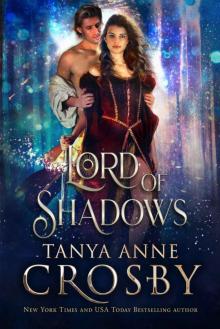 Lord of Shadows (Daughters of Avalon Book 5)
Lord of Shadows (Daughters of Avalon Book 5) To Love a Lord: A Victorian Romance Collection
To Love a Lord: A Victorian Romance Collection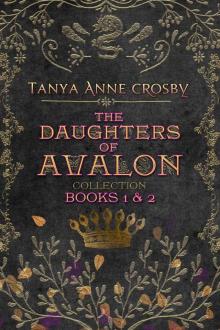 The Daughters of Avalon Collection: Books 1 & 2
The Daughters of Avalon Collection: Books 1 & 2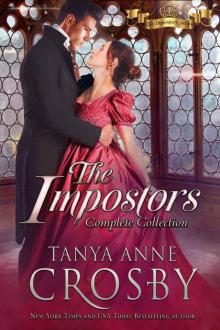 The Impostors: Complete Collection
The Impostors: Complete Collection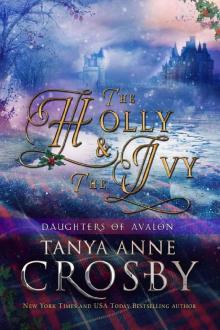 The Holly & the Ivy (Daughters of Avalon Book 2)
The Holly & the Ivy (Daughters of Avalon Book 2)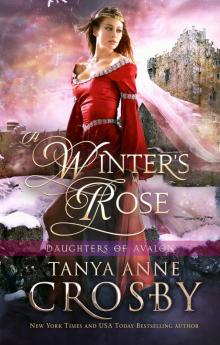 A Winter’s Rose
A Winter’s Rose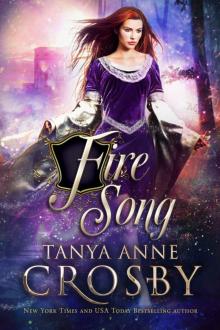 Fire Song (Daughters of Avalon Book 4)
Fire Song (Daughters of Avalon Book 4)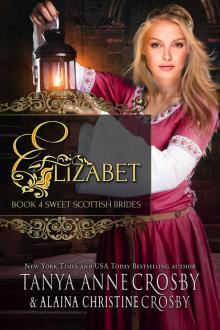 Elizabet
Elizabet Kissed; Christian
Kissed; Christian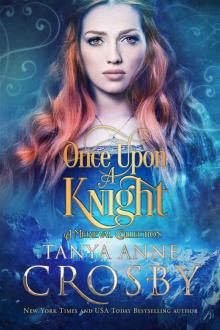 Once Upon a Knight
Once Upon a Knight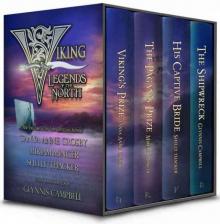 Viking: Legends of the North: A Limited Edition Boxed Set
Viking: Legends of the North: A Limited Edition Boxed Set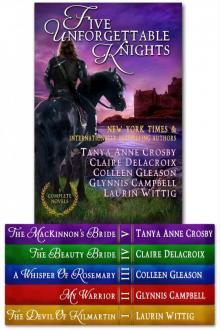 Five Unforgettable Knights (5 Medieval Romance Novels)
Five Unforgettable Knights (5 Medieval Romance Novels)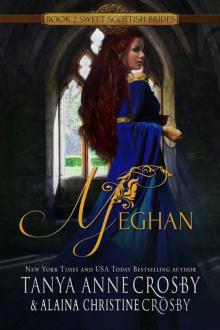 Meghan: A Sweet Scottish Medieval Romance
Meghan: A Sweet Scottish Medieval Romance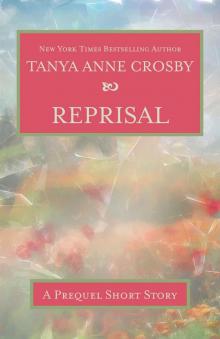 Reprisal: A Prequel Short Story to REDEMPTION SONG
Reprisal: A Prequel Short Story to REDEMPTION SONG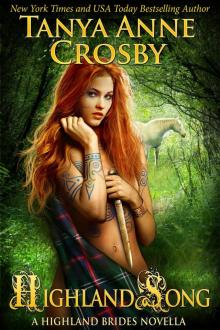 Highland Song
Highland Song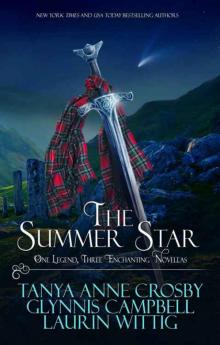 The Summer Star: One Legend, Three Enchanting Novellas (Legends of Scotland Book 2)
The Summer Star: One Legend, Three Enchanting Novellas (Legends of Scotland Book 2) Once Upon a Kiss
Once Upon a Kiss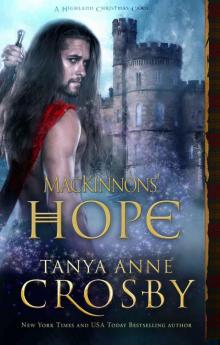 MacKinnons' Hope: A Highland Christmas Carol
MacKinnons' Hope: A Highland Christmas Carol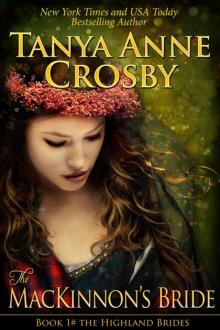 The MacKinnon's Bride
The MacKinnon's Bride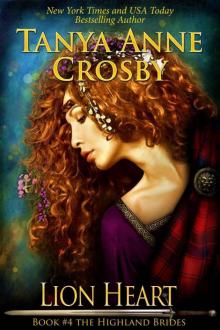 Highland Brides 04 - Lion Heart
Highland Brides 04 - Lion Heart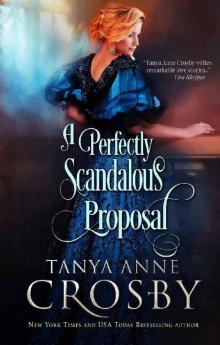 A Perfectly Scandalous Proposal (Redeemable Rogues Book 6)
A Perfectly Scandalous Proposal (Redeemable Rogues Book 6) Reprisal
Reprisal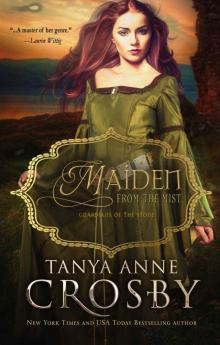 Maiden from the Mist (Guardians of the Stone Book 4)
Maiden from the Mist (Guardians of the Stone Book 4)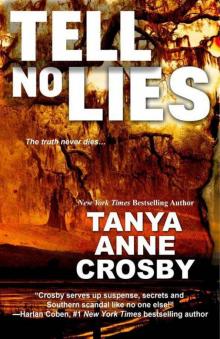 Tell No Lies
Tell No Lies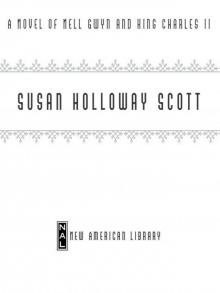 The King's Favorite
The King's Favorite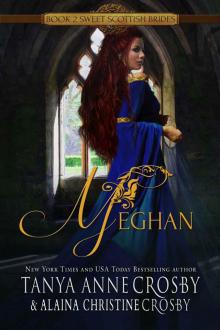 Meghan: A Sweet Scottish Medieval Romance (Sweet Scottish Brides Book 2)
Meghan: A Sweet Scottish Medieval Romance (Sweet Scottish Brides Book 2)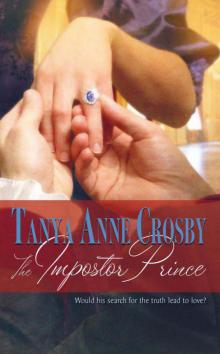 The Impostor Prince
The Impostor Prince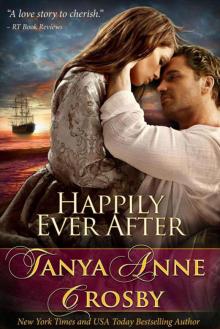 Happily Ever After
Happily Ever After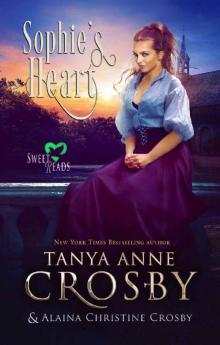 Sophie's Heart: Sweet Historical Romances
Sophie's Heart: Sweet Historical Romances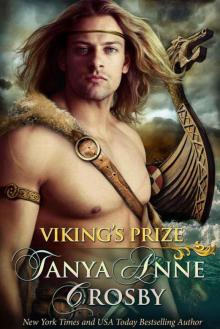 Viking's Prize
Viking's Prize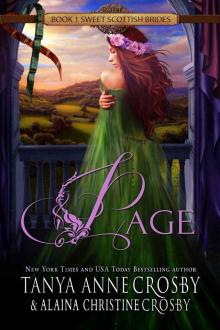 Page
Page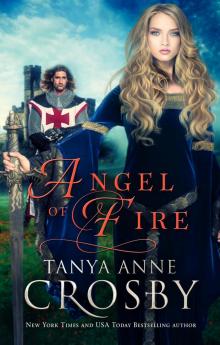 Angel of Fire
Angel of Fire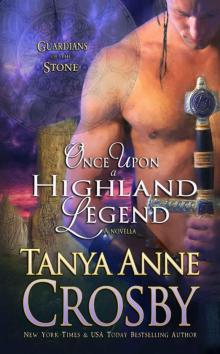 Once Upon A Highland Legend
Once Upon A Highland Legend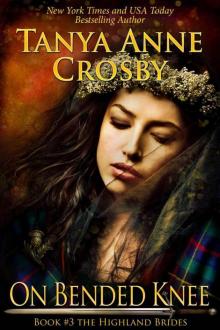 Highland Brides 03 - On Bended Knee
Highland Brides 03 - On Bended Knee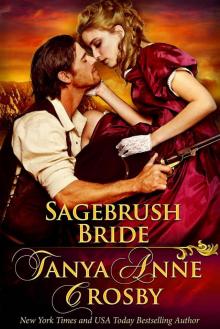 Sagebrush Bride
Sagebrush Bride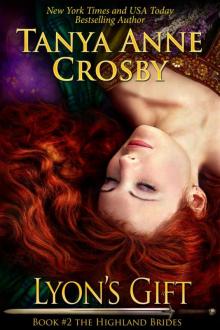 Lyon's Gift
Lyon's Gift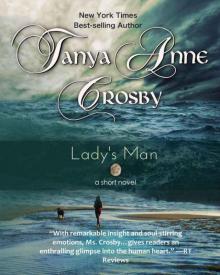 Lady's Man
Lady's Man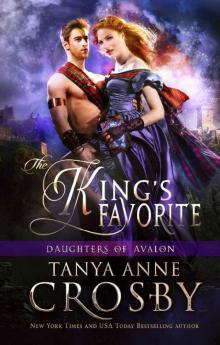 The King's Favorite (Daughters of Avalon Book 1)
The King's Favorite (Daughters of Avalon Book 1)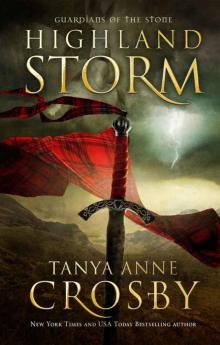 Highland Storm
Highland Storm Redemption Song
Redemption Song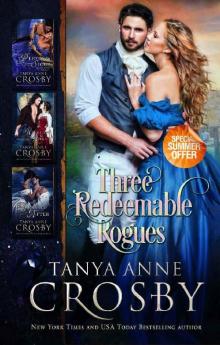 Three Redeemable Rogues
Three Redeemable Rogues